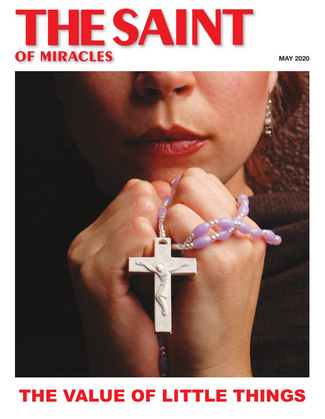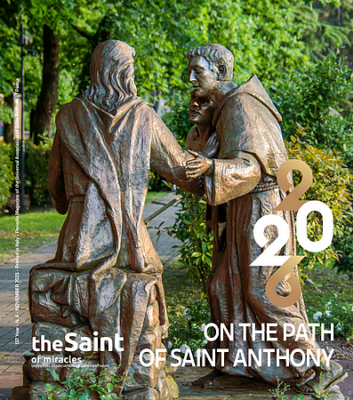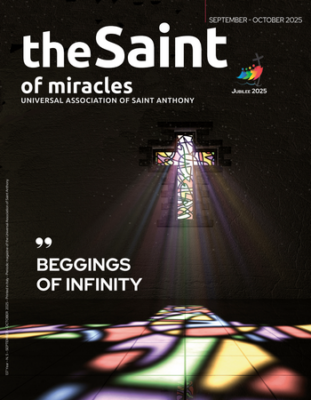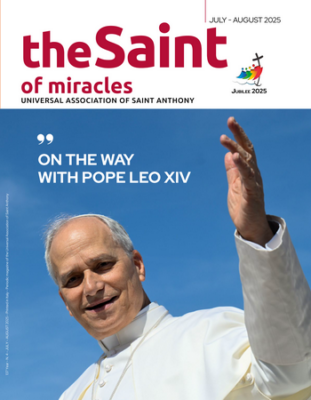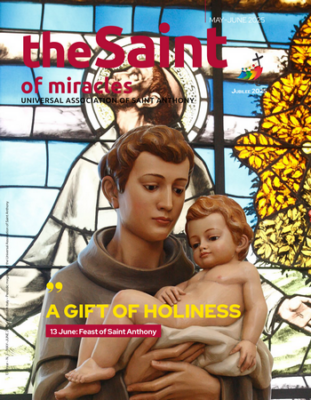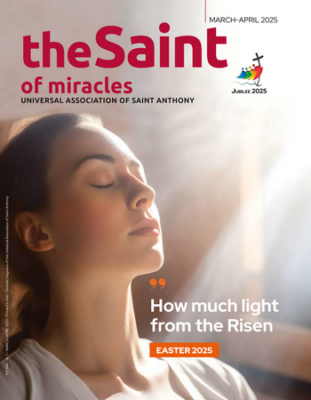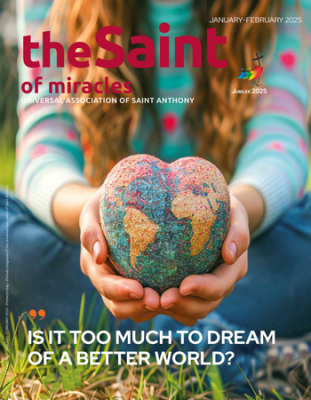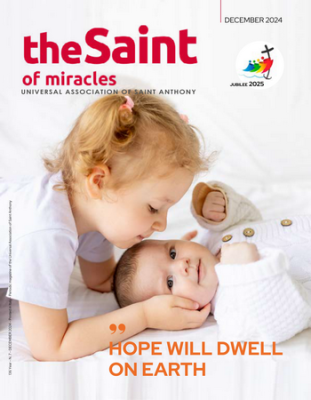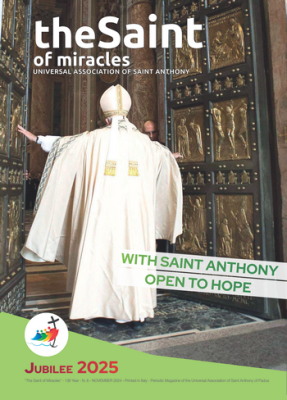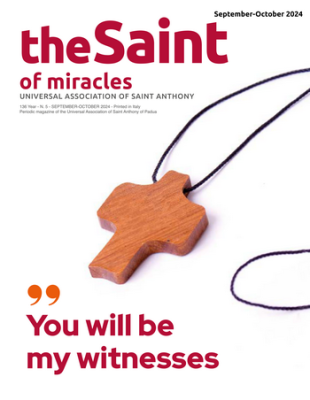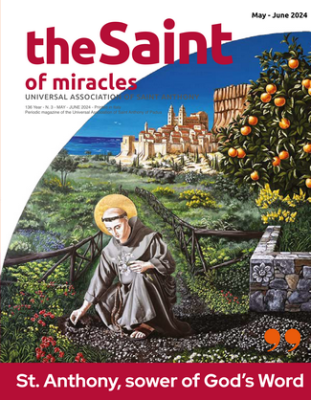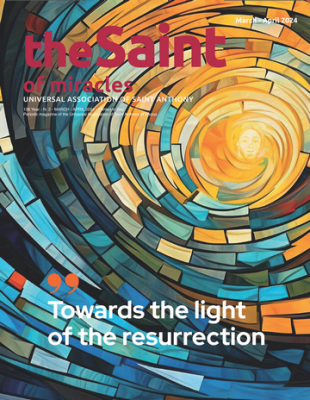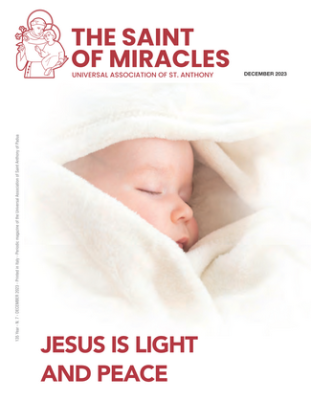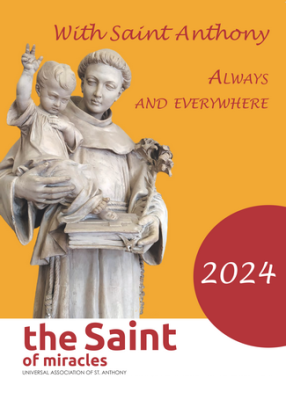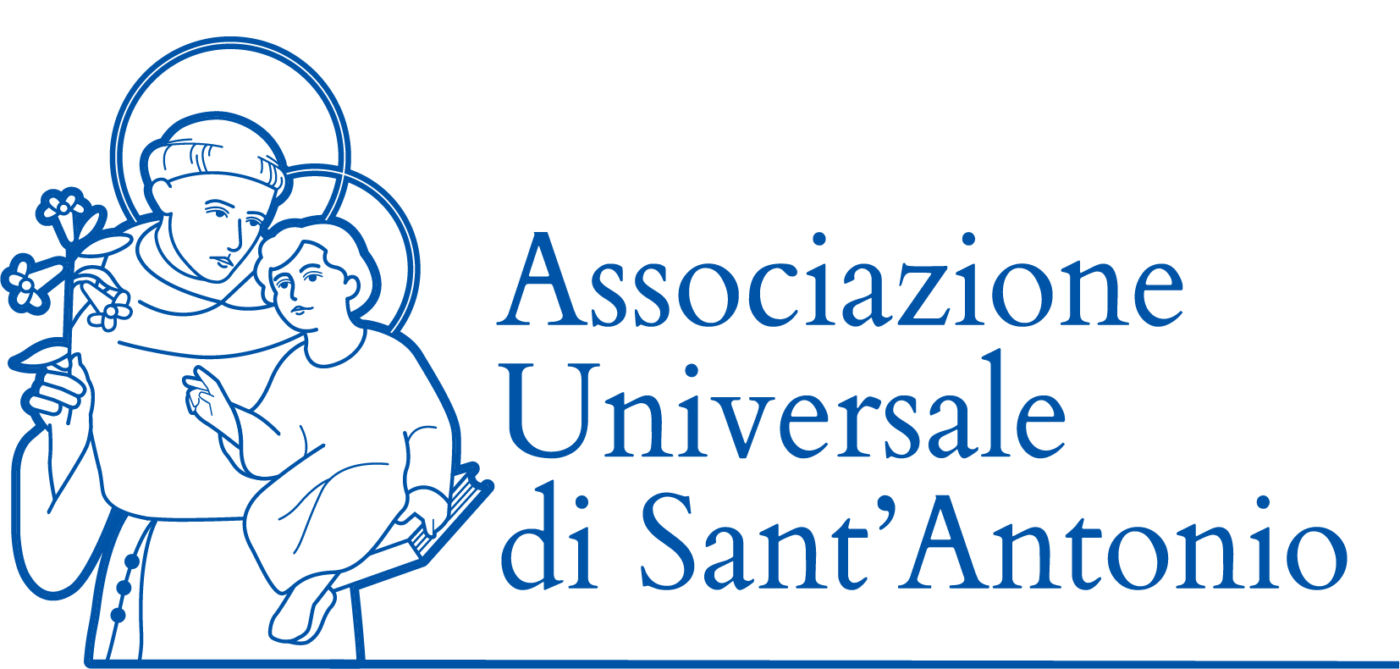Year 132 - May 2020Find out more
Send your Spirit to renew us!
Fr. Chino Biscontin
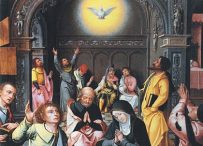
The feast of Pentecost (which means “fifty days”; this year on 31 May) has remote origins. It was a feast for the beginning of the harvest. However, after the Exodus it was linked to the events of holy history within which God guided his people. Based on the accounts of Deuteronomy, the gift of the Law to Moses on Sinai took place on the fiftieth day after he came out of slavery in Egypt.
This capital event was celebrated on the feast of Easter, and fifty days later the gift of the Law was celebrated, and this was also the case in Jesus’ time. At Pentecost, in the Upper Room, the Risen Lord gave the small community of his disciples, gathered together with the Mother of Jesus, the promised Holy Spirit.
The Law, which alone cannot bring salvation, is written in hearts as Love that converts and transfigures. And in the power of the Spirit the tiny “Church” of Jerusalem inaugurates the proclamation of the Gospel of the Risen Lord Jesus. And the Word of the Gospel will no longer stop, it will reach to the ends of the earth.
The order of the liturgical year, as it results from the reform carried out by the Second Vatican Council, considers the fifty days from Easter to Pentecost as a single festive limb. The Sundays following Easter are not called “after Easter”, but Sundays II, III, IV... VII of Easter. And Pentecost brings Easter to its fulfillment.
The events of the death and resurrection of the Lord Jesus would have remained sterile for us without the gift of the Holy Spirit, which is the indispensable fruit of it. Participation in the divine life, which Jesus gave us, is brought about by the coming in us of the Holy Spirit. Considering the biblical readings proclaimed in the Eve Mass and on the feast day, the prayers and the preface, the grace of Pentecost has these dimensions.
First of all, the fulfillment of the prophetic promises concerning the outpouring of the Holy Spirit and the gift of a new heart, docile to God. As Saint Paul states clearly: “The love of God has been poured out into our hearts through the holy Spirit that has been given to us” (Rom 5:5). Sharers in God’s goodness, made capable of following the path indicated by Jesus, destined for eternal life.
Secondly, the definitive constitution of the Church, the community of the Lord, consecrated to be the “Body of Christ” among men. The Holy Spirit, in fact, is given to the community gathered at Pentecost, and the flames which rest on each one come from the same fire. The Church was instituted by Jesus during his ministry, with his evangelical proclamation and teaching, with the choice of the twelve, with the primacy conferred on Peter, with the delivery of the Eucharist which contains his giving himself on the cross and his surrender to the Father.
But just as a child is formed in the womb and then given birth, so at Pentecost the Church is born and given to the world. Thirdly, the breaking down of all barriers and the affirmation that salvation is given freely to all people. Pentecost is the “anti-Babel” that breaks down misunderstanding, closure, estrangement and dispersion. Finally, Pentecost is the beginning of the missionary impulse of Jesus’ disciples.
Peter, who during the trial of Jesus before Caiaphas out of fear denied three times that he knew him, at Pentecost, having received the Holy Spirit, made the first courageous missionary announcement to the crowd gathered in front of the Upper Room. He is aware that he is risking prison and life, but he proclaims aloud: “Therefore let the whole house of Israel know for certain that God has made him both Lord and Messiah, this Jesus whom you crucified” (Acts 2:36), and again: “Repent and be baptized, every one of you, in the name of Jesus Christ for the forgiveness of your sins; and you will receive the gift of the Holy Spirit” (Acts 2:38).


 Italiano
Italiano Français
Français